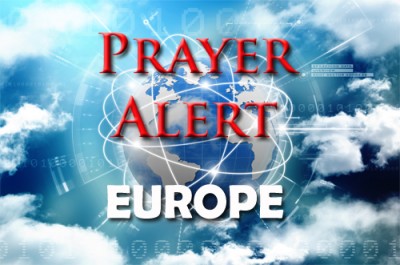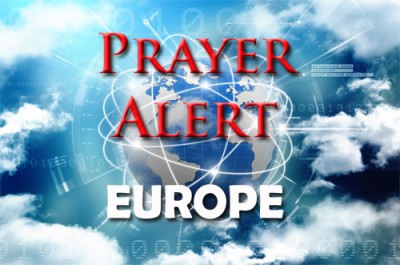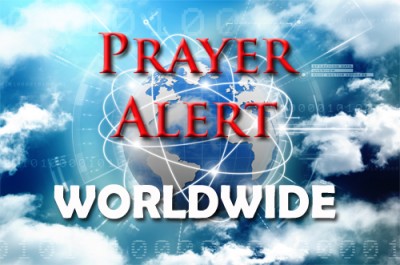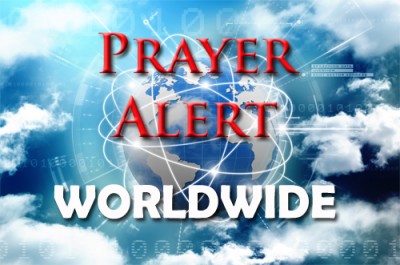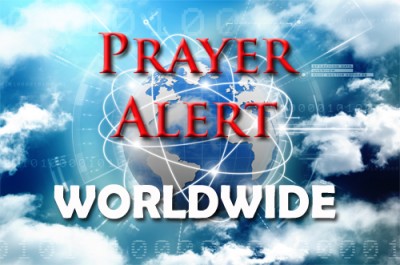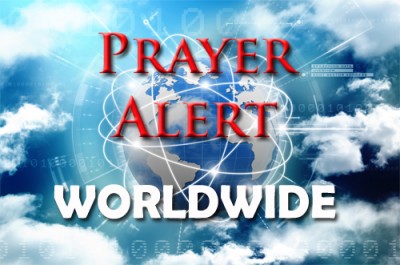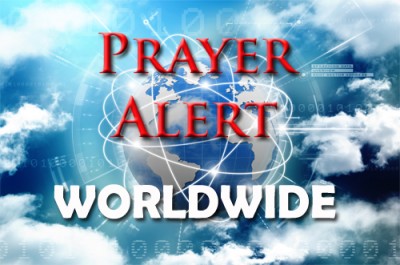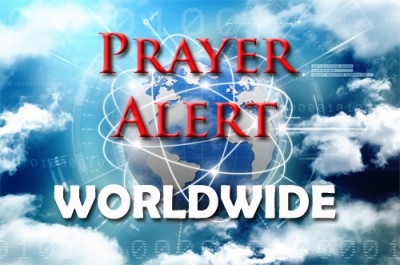The death toll from flooding in Western Europe keeps climbing as rescue workers dig deeper into debris left by receding waters. Germany’s finance minister has proposed a package of immediate aid, of more than 300 million euros. Pray for the government also to dig deeper into available funds so that suitable rebuilding programs can be set up speedily. From experience with previous flooding, costs will be in the billions of euros. Police fear the number of dead may still rise in many areas. Pope Francis offered a prayer for the flood victims and for the efforts of all to help those who suffered great damage: ‘I express my closeness to the populations of Germany, Belgium and Holland, hit by catastrophic flooding.’ German officials have asked people not to make any more donations, as their generosity has left storage facilities for clothes and food full.
Alarm over migrants’ hunger strike in Brussels
23 Jul 2021The Belgian government is under pressure to offer residence permits to hundreds of undocumented migrants who have been on hunger strike in Brussel’s Béguinage church and university buildings for sixty days and are in a life and death situation. Alarm grows because some are now refusing water. Four men stitched their lips together last month to press their case for legal access to the jobs market and social services. Two UN officials urged the government to offer temporary residence permits to the 476 hunger strikers. 150,000 sans papiers live in Belgium, according to the campaign group ‘We Are Belgium Too’, which is calling for the regularisation of undocumented migrants. Many have been in Belgium for five or ten years. Belgium’s minister for asylum and migration refused a blanket amnesty to undocumented workers. The deputy prime minister and other Socialist ministers threatened to quit the government if any hunger strikers died. It is becoming a political snowball.
Canada: 45 churches set on fire
23 Jul 2021An ongoing anti-Christian campaign in Canada has resulted in churches being attacked and burnt down. Those responsible include far-left terrorists with a Marxist ideology whose sole purpose is to strike fear in Canadians for practising their faith. Most of the churches burnt and defaced serve indigenous Christians. ‘Burning down churches is not in solidarity with us indigenous people. We do not destroy people's places of worship,’ said Jenn Allan-Riley, assistant Pentecostal minister at Living Waters Church. Seventeen of the 45 buildings, across six provinces and the Northwest Territories, have suffered fire damage or been completely burned to the ground. The terrorism began following discoveries of unmarked graves of indigenous children on the sites of Catholic boarding schools. Terrorists also targeted non-Catholic churches. Calgary’s House of Prayer Alliance Church was torched, leaving 230 Vietnamese refugees with nowhere to meet. The Royal Canadian Mounted Police are investigating the terrorism.
South Africa: the spiritual battle
23 Jul 2021Many believe that what we see in South Africa is the physical manifestation of what is happening in the spiritual realm. A spiritual battle is raging across South Africa, and it is manifested through riots, arson, gang violence, taxi violence, farm murders, etc. When confronted with recent scenes we must guard our hearts and minds against looking at it purely from a physical perspective. Mr Zuma’s imprisonment represents the progress made in the fight against corruption within the country. Amid the many challenges SA faces, it is easy to lose sight of the good, and positive things that are happening. In 3 ½ years SA has seen the evidence of corruption and specifically ‘state capture’ being brought to light. This would never have happened, had it not been for a mighty movement by God’s Spirit, in conjunction with many prayers. The devil would not be happy about it and is heating up the battle to ‘turn the tide’.
China floods: 'worst rain for 1,000 years'
23 Jul 2021At least 33 people have died in the ‘heaviest rainfall in a millennium’ in central China. The torrential floods paralysed several cities, causing millions of pounds in damage. Vast swathes of Zhengzhou city are under several feet of water. Cars float down streets and 200,000 people fled flooding in Henan province, home to China’s agricultural industry. The subway flooded, trapping passengers inside carriages as water levels rose. Platforms were submerged and commuters clung to railings to keep their heads above the fast-flowing deluge as air was running out. Train services across the province have been suspended, highways remain closed, and flights cancelled. At least two dams in Inner Mongolia have collapsed. Other dams that enclose China’s reservoirs are threatening to fail. Rescue workers are evacuating residents from Hefei, and a hospital with 7,000+ beds lost power, with staff racing to relocate hundreds of critically ill patients. More rain is expected in the coming days.
USA: wildfires across the west
23 Jul 2021The Bootleg Fire in Oregon is the largest of 300 raging in the USA, more than 80 of which are described as major blazes. It has burned through over 300,000 acres, prompting thousands of evacuations. Over 2,000 firefighters are tackling the fire, one of the largest blazes in Oregon's history. Since starting on 6 July, it has already scorched an area larger than the city of Los Angeles. The fires raging across 13 US states are spurred by heatwaves and high winds. At least 160 homes and buildings have been destroyed so far. Fire incident commander Joe Hessel said, ‘We are running firefighting operations day and night. This fire is a real challenge, and we are looking at a sustained battle for the foreseeable future.’ It threatens to destroy thousands more properties as it continues spreading.
Equatorial Guinea: kleptocracy
23 Jul 2021Revelations by courageous investigative journalists reveal kleptocracy in Equatorial Guinea. A recent cross-border investigation exposed how Gabriel Mbega Obiang Lima - the President’s son, and the country’s oil minister - may have siphoned off millions in state funds and bribes abroad. Journalists tracked down an international web of shell companies and properties linked to him, including a Cyprus company and its subsidiaries in other countries. Another corruption investigation, released this week, implicates two more individuals related to the Obiangs who run Equatorial Guinea's state oil company. Journalists discovered the oil industry power couple had luxury properties around the world that even their hefty pay packages cannot explain. In Cyprus they purchased a €2.5 million villa to obtain golden EU passports. The international community needs to make it much more difficult, and eventually impossible, for the kleptocrats to enjoy the proceeds of their crimes, deterring them from stealing from their people in the first place.
Cuba: protests against government
23 Jul 2021Historic and spontaneous protests rocked Cuba on 11 July, taking the communist government and the international community by surprise by their intensity and numbers. Analysts say there will not be immediate changes to one-party communist rule, but it’s a watershed moment and they have put an enormous amount of pressure on the government to speed up reforms. Cubans experiencing food and medicine shortages, increasing Covid-19 cases, inflation, rising prices and long power cuts chanted ‘Freedom’ and ‘We want change’, while holding signs that read ‘Down with dictatorship’. Journalist Yoani Sánchez tweeted, ‘We were so hungry, we ate our fear.’ Dr. Teo Babun said dissent has been brewing in the church for months. Evangelicals and Catholics have been generating a tremendous amount of social media, demanding the government pay attention to the hurt taking place. Political changes depend on whether demonstrators continue the momentum that stunned so many on 11 July.
